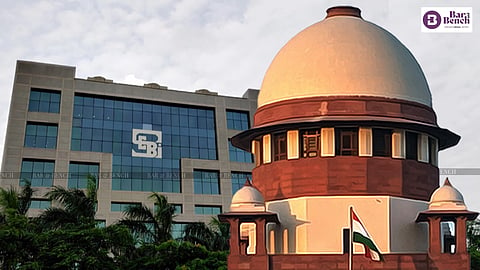The Supreme Court on Tuesday upheld the power of the Securities and Exchange Board of India (SEBI) to recover interest on unpaid penalties from the date of adjudication, even if the original order does not expressly provide for interest. [Jaykishor Chaturvedi & Ors v. SEBI]

